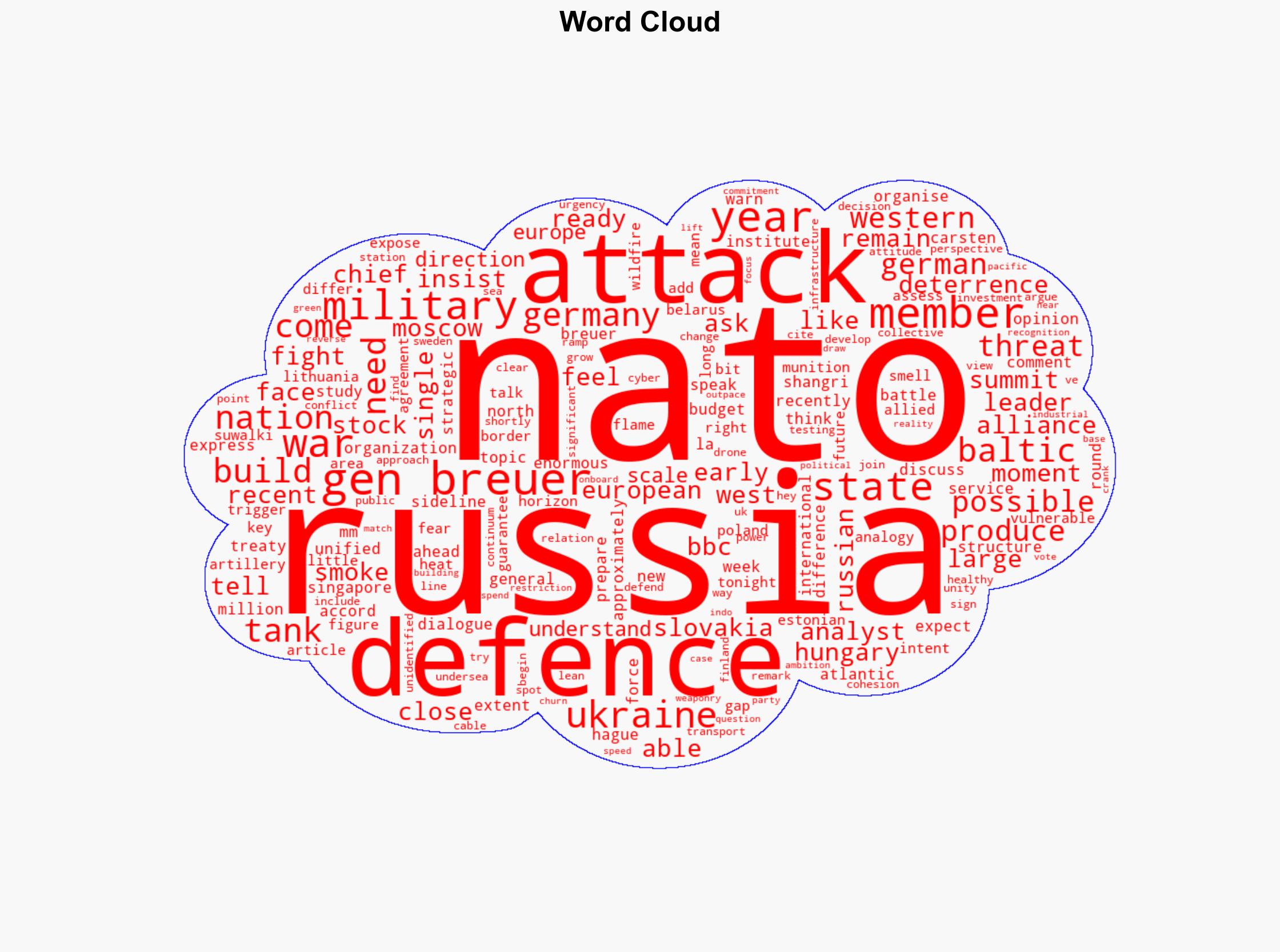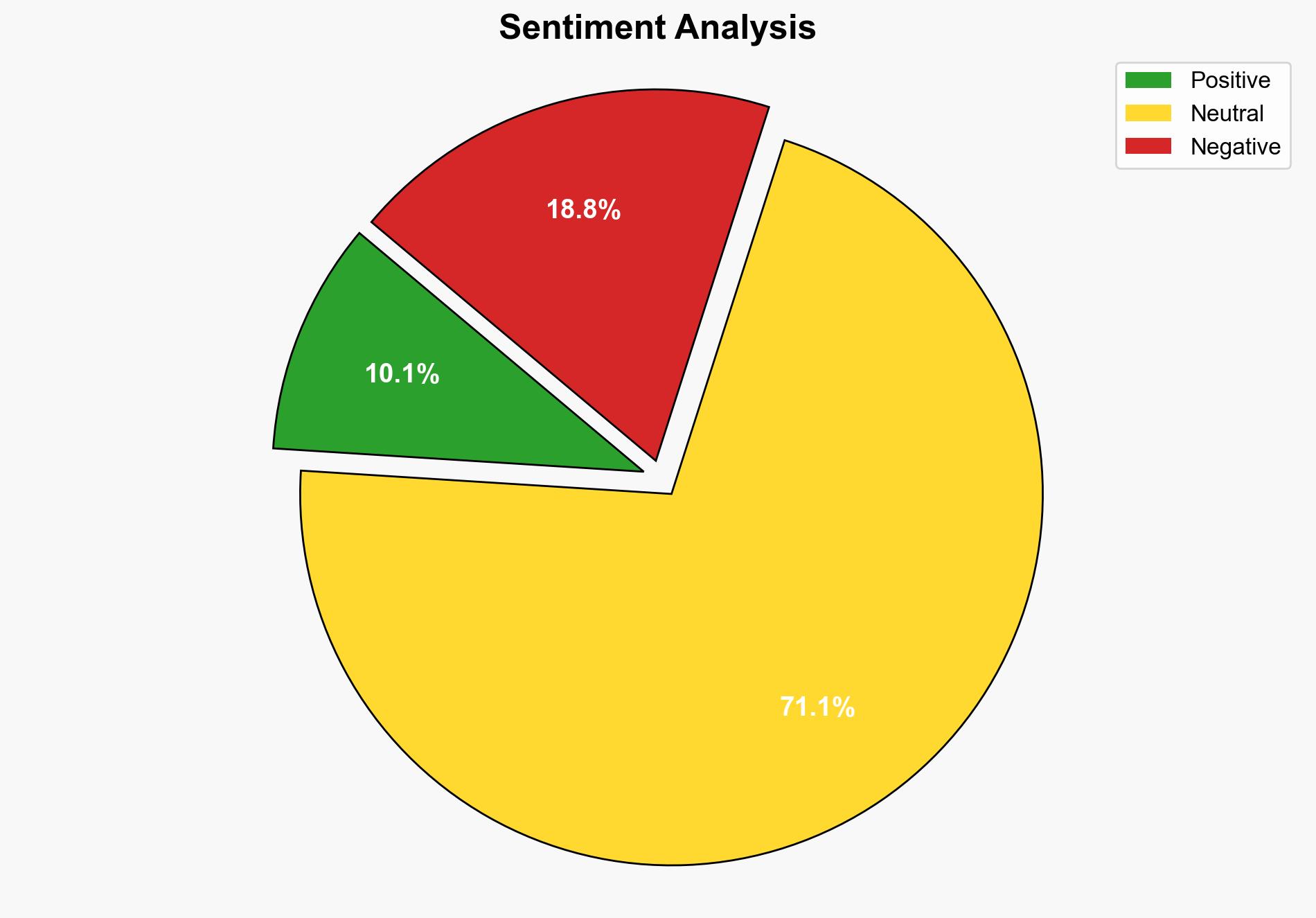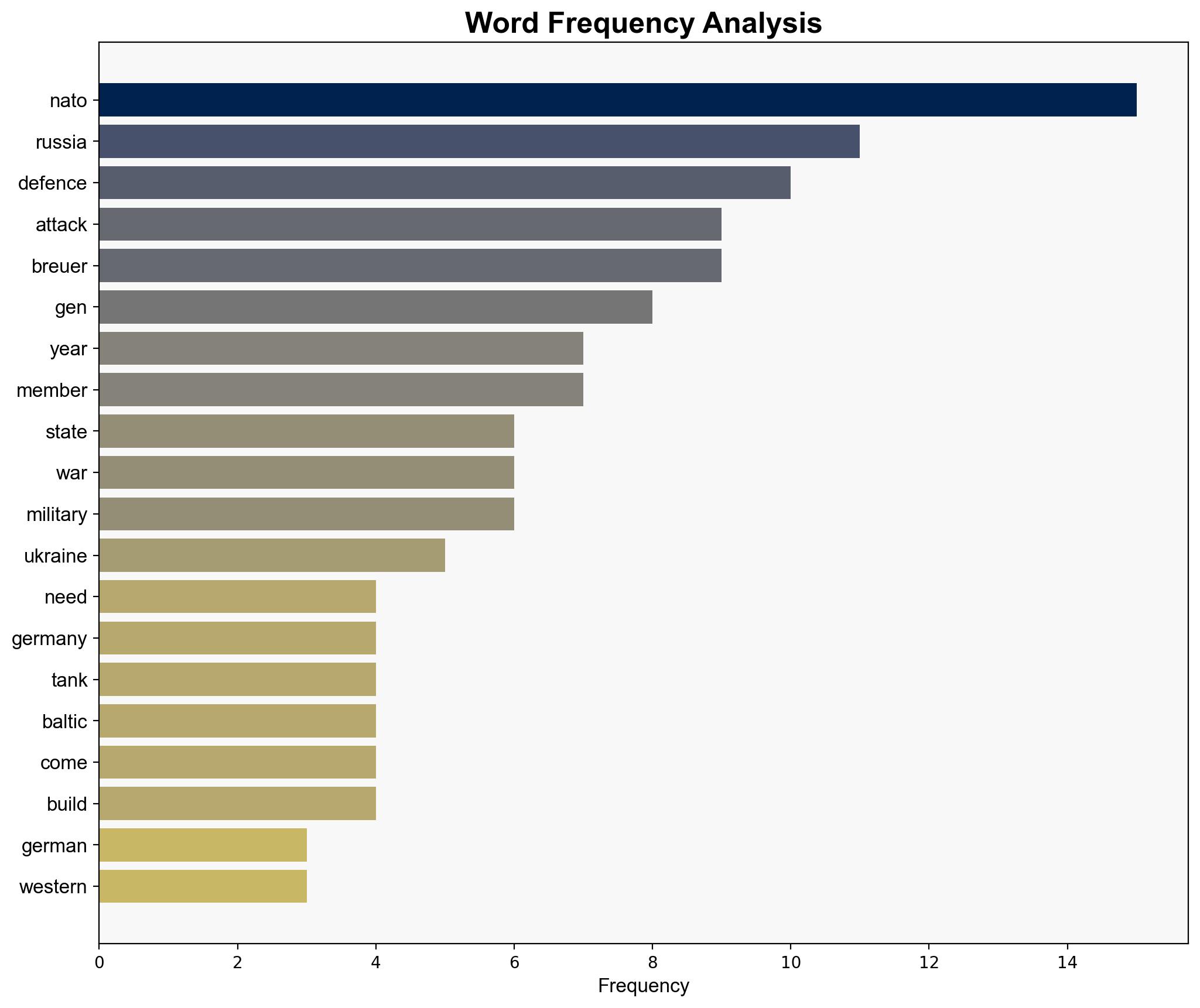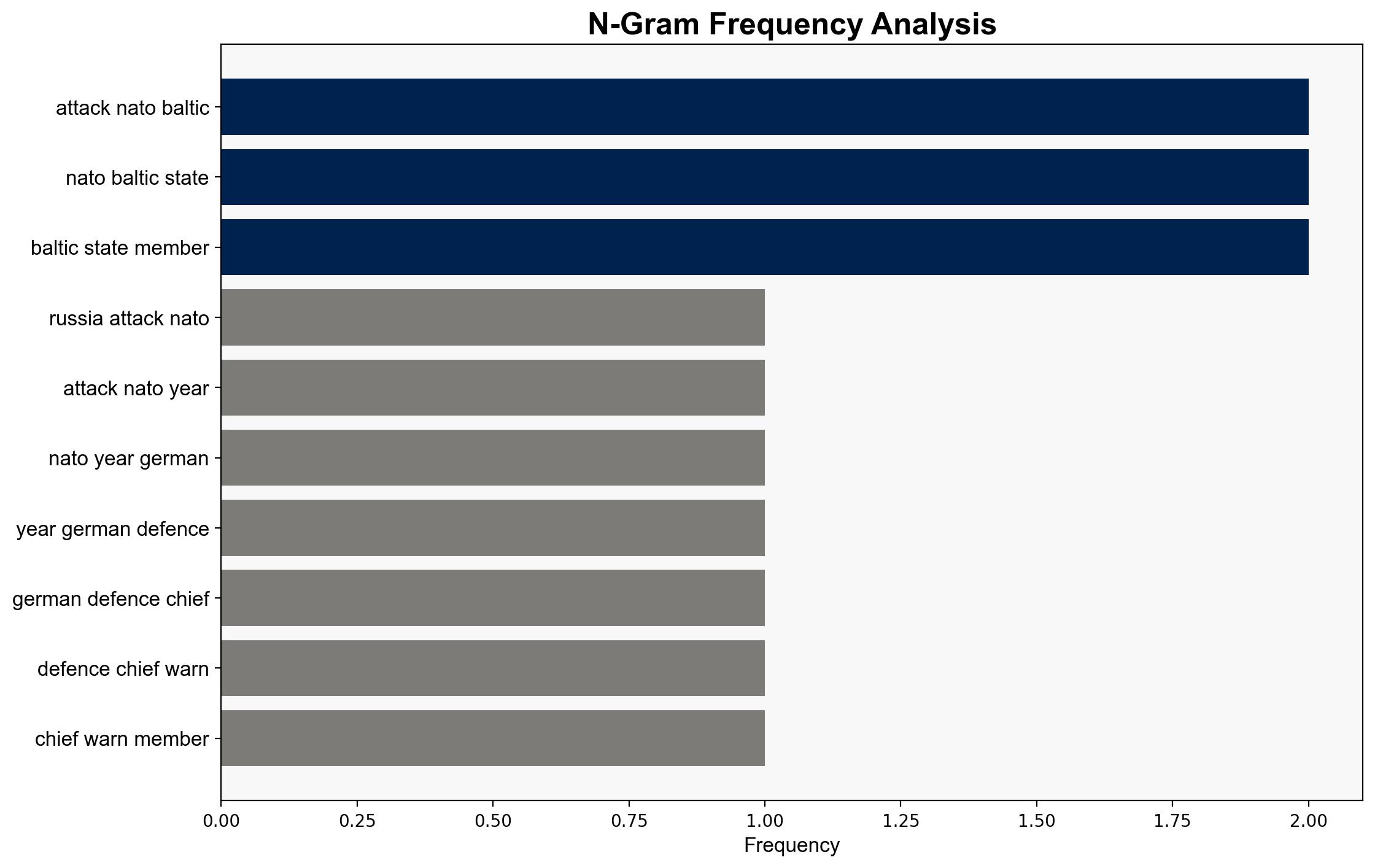Russia may attack Nato in next four years German defence chief warns – BBC News
Published on: 2025-06-01
Intelligence Report: Russia may attack Nato in next four years German defence chief warns – BBC News
1. BLUF (Bottom Line Up Front)
The German defense chief, General Carsten Breuer, has warned of a potential Russian attack on NATO within the next four years, emphasizing the need for preparedness among member states. This report analyzes the strategic implications of such a scenario, highlighting the importance of maintaining NATO cohesion and enhancing military readiness in response to Russia’s military build-up.
2. Detailed Analysis
The following structured analytic techniques have been applied to ensure methodological consistency:
Causal Layered Analysis (CLA)
At the surface level, Russia’s increased military production, including tanks and artillery, signals a potential threat to NATO’s eastern flank. Systemically, this aligns with Russia’s strategic posture of countering NATO influence. The prevailing worldview in Moscow views the conflict in Ukraine as part of a broader confrontation with NATO, perpetuating a myth of existential struggle against Western encroachment.
Cross-Impact Simulation
The potential for conflict could strain relations between NATO members, particularly those with closer ties to Moscow, such as Hungary and Slovakia. Economic dependencies, especially in energy, could further complicate unified responses. A Russian attack on the Baltic states could trigger a broader conflict, impacting regional stability and global markets.
Scenario Generation
Three scenarios are considered:
1) A worst-case scenario where Russia launches a surprise attack on a Baltic state, leading to a full-scale NATO response.
2) A best-case scenario where diplomatic efforts and military deterrence prevent escalation.
3) A most likely scenario where tensions remain high, with periodic cyber and hybrid attacks testing NATO’s resolve.
3. Implications and Strategic Risks
The primary risk lies in the potential for miscalculation leading to conflict. Cyber vulnerabilities could be exploited to disrupt NATO’s command and control systems. Economically, a conflict could destabilize European markets and energy supplies. Politically, differing threat perceptions among NATO members could undermine collective defense efforts.
4. Recommendations and Outlook
- Enhance NATO’s rapid response capabilities and increase joint military exercises to deter potential aggression.
- Strengthen cyber defenses and improve intelligence-sharing mechanisms among member states.
- Engage in diplomatic efforts to de-escalate tensions while maintaining a credible deterrent posture.
- Scenario-based projections suggest maintaining readiness for a range of contingencies, from hybrid warfare to conventional conflict.
5. Key Individuals and Entities
General Carsten Breuer, NATO, Russia, Hungary, Slovakia, Estonia, Lithuania, Poland.
6. Thematic Tags
national security threats, cybersecurity, counter-terrorism, regional focus





